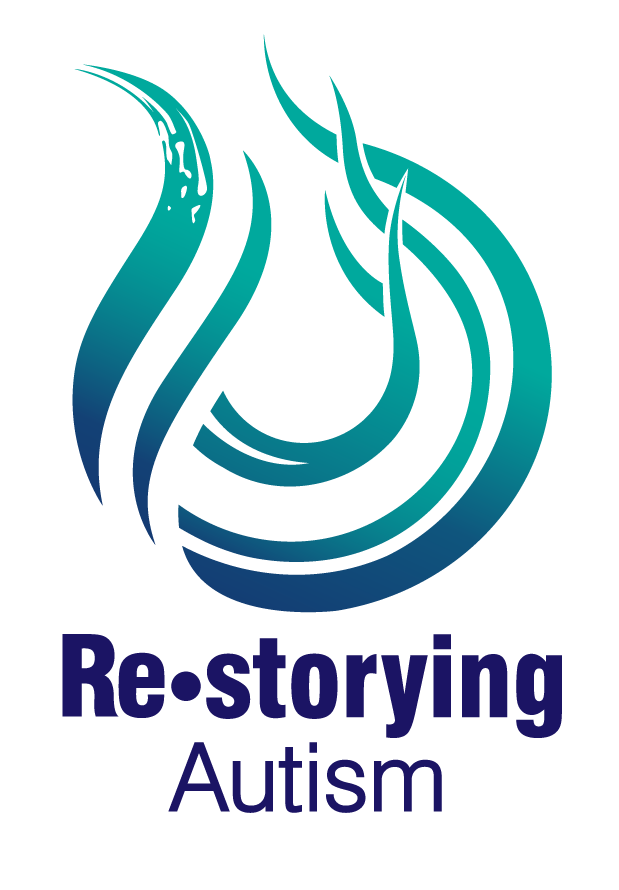Autistic, Surviving and Thriving Under COVID-19:
Imagining Inclusive Autistic Futures
Sherri Liska
Katrissa Singer
Emily Gillespie
Sheryl Peters
Patty Douglas
Associate Professor (Brandon University)
Abstract
This article takes up Mia Mingus’ call to “leave evidence” of how we have lived, loved, cared, and resisted under ableist neoliberalism and necropolitics during COVID-19 . We include images of artistic work from activist zines created online during the COVID-19 pandemic and led by the Re•Storying Autism Collective. The zines evidence lived experiences of crisis and heightening systemic and intersectional injustices, as well as resistance through activist art, crip community, crip knowledges, digital research creation, and the forging of collective hope for radically inclusive autistic futures—what zine maker Emily Gillespie calls “The neurodivergent, Mad, accessible, Basic Income Revolution.” We frame the images of artistic work with a coauthored description of the Collective’s dream to create neurodivergent art, do creative research, and work for disability justice under COVID-19. The zine project was a gesture of radical hope during crisis and a dream for future possibilities infused with crip knowledges that have always been here. We contend that activist digital artmaking is a powerful way to archive, theorize, feel, resist, co-produce, and crip knowledge, and a way to dream collectively that emerged through the crisis of COVID-19. This is a new, collective, affective, and aesthetic form of evidence and call for “forgetting” ableist capitalist colonialism and Enlightenment modes of subjectivity and knowledge production that target different bodies to exploit, debilitate, and/or eliminate, and to objectify and flatten what it means to be and become human and to thrive together.
This manuscript has been published and is available in Lateral: Journal of The Cultural Studies Association, published online at: https://csalateral.org/section/crip-pandemic-life/autistic-surviving-thriving-covid-autistic-futures-zine-restorying-collective-liska-singer-gillespie-peters-douglas/
Recommended Citation:
Liska, Sherri, Katrissa Singer, Emily Gillespie, Sheryl Peters and Patty Douglas. (2022). Autistic, Surviving and Thriving Under COVID-19: Imagining Inclusive Autistic Futures—A Zine Making Project by the Re•Storying Autism Writing Collective. Lateral: Journal of the Cultural Studies Association, Crip Pandemic Life: A Tapestry. 11(2)
Storytelling Methods on the Move
The Re•Storying autism collective
Raya Shields
MA (York university)
Steacy Easton
PhD student
Julia Gruson-Wood
Postdoctoral fellow (University of guelph)
Margaret F. Gibson
Assistant professor (University of Waterloo)
Patty Douglas
Associate professor (brandon university)
Carla Rice
Professor (university of Guelph)
Abstract
This article takes up multimedia storytelling and interference as methods on the move in and beyond critical Autism studies and considers their contributions to post and qualitative studies in education. We write as a collective of Autistic and non-Autistic researchers, kin, artists, and educators. We think generatively with the tensions of trying to do anti-normative research through a multimedia storytelling project about Autism justice in education within the confines of academic spaces across differing relationalities to Autism. We situate our method within new materialist ontology, homing in on the concept of “interference” —something we believe has not been done within critical Autism studies before—considering what interference as metaphor and method might offer our analytic approach that diffraction alone might miss. Through analyzing core tensions in the research process and in three films made by Autistic participant-storytellers, we show how Autism flows together and/or collides with storytelling and other post/qualitative methods to make new story forms and modes, and with these, new patterns for understanding Autism and justice in research and education. Our aim is transformative—to open space through post/qualitative research processes for Autistic perspectives and to release multiple stories of Autism into the world. In this we lean into interference and the tangle of research and relationality, power, and possibility for more innovative, just, and critically hopeful knowledge and practice.
This manuscript has been published and is available in International Journal of Qualitative Studies in Education, published online 20 April 2022, http//www tandfonljne com/10.1080/09518398.2022.206125
Recommended Citation:
The Re•Storying Autism Writing Collective, Raya Shields, Steacy Easton, Julia Gruson-Wood, Margaret F. Gibson, Patty N. Douglas & Carla M. Rice (2022) Storytelling methods on the move, International Journal of Qualitative Studies in Education, DOI: 10.1080/09518398.2022.2061625
Making Memories, Making Madness
Making Memories, Making Madness: Mad (M)others of Disabled Children Write Back Through Digital Storytelling
Patty Douglas
Brandon University
Katherine Runswick-Cole
University of sheffield
Penny fogg
University of sheffield
Sara ryan
oxford university
Abstract
This article focuses on a story of education, mothering, disability and madness, with two aims in mind:
● To reveal and to reflect upon the ways in which (m)others of dis/abled children are labelled as, and are made to feel, mad in their encounters with the psy- professions (education, psychology and psychiatry).
● To explore the potential of digital storytelling as a method of writing back against dominant oppressive narratives of education, mothering and disability.
This paper is written by mothers of adult offspring with disabilities about our experiences of raising our children. We write about our experiences of making a film about being mothers. We explain that we have all been told by professionals that our beliefs about our children and what is best for them are mad—that is, they are unreasonable or not to be trusted. In the paper, we reject this view and argue that our voices should be listened to. We hope that this story telling process can reveal the ways in which discourses of madness are used to oppress (m)others of dis/abled children in encounters in education. We also hope that we can begin to build narratives of resistance so that madness no longer becomes the discourse of choice in encounters between (m)others and practitioners.
This is an Accepted Manuscript of an article published by the Ontario Association on Developmental Disabilities in the Journal on Developmental Disabilities, available online at: https://oadd.org/journal/volume-27-number-2-changing-social-welfare-provisions-and-shifting-family-dynamics/
Recommended Citation:
Douglas, Patty, Katherine Runswick-Cole, Penny Fogg & Sara Ryan. (2021). Making Memories, Making Madness: Mad (M)others of Disabled Children Write Back Through Digital Storytelling. Journal on Developmental Disabilities. 27 (2): 39-56.
Decolonizing Autism
Decolonizing Stories of Autism in Education
Patty Douglas
Sheryl Peters
Published in Brandon University Research Connection
